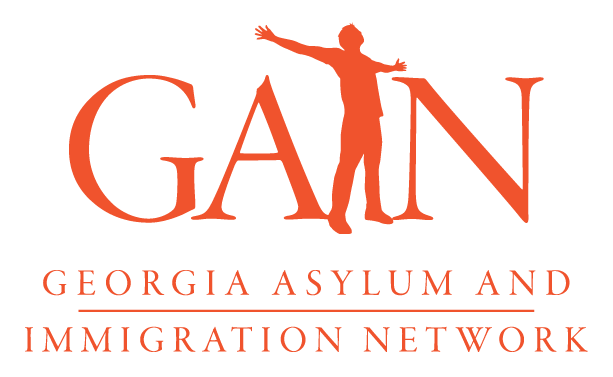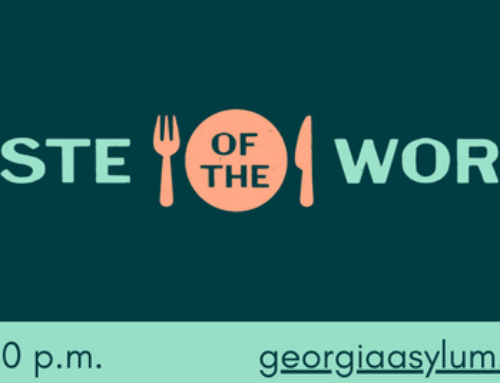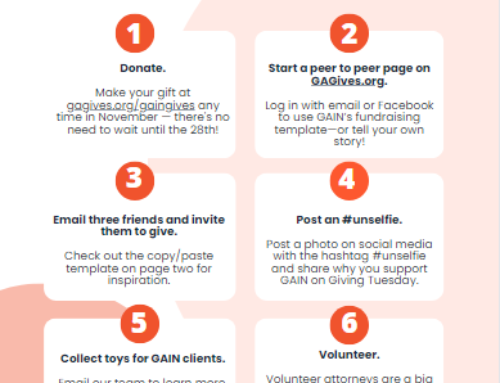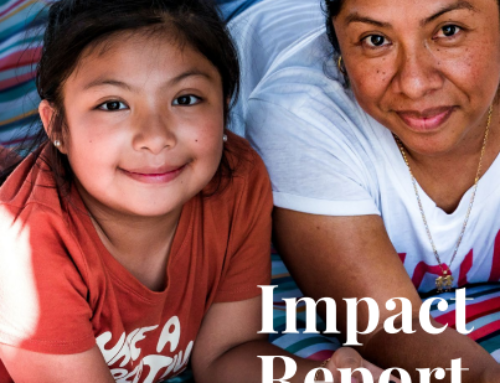Challenges in Advocating for Victims of Violence
Nicole is our summer legal intern and often writes about her perspective working at GAIN, which you can read more about here. We’re thrilled to share her most recent post.
Jimena is a survivor of domestic violence, and one of our newest clients. She lives in a rural part of Georgia, and this has presented its own challenges for working on her case. I’ve spent countless hours helping her write her affidavit, speaking with her about her case, and researching options for her. She is a U-visa client, meaning she is applying as a victim of a crime that occurred in the United States. We hit a roadblock this week when we were unable to secure her U-visa certification through one of the only routes we had left.
Working with clients in rural areas is already a challenge. There are thirty-five counties in Georgia with fewer than four practicing attorneys, and six counties with none. While individuals who are convicted of a crime are entitled to representation, there are still many people involved in civil litigation that need representation, and aren’t able to come by it as easily. Even so, nationwide,public defenders are scarce in some rural areas, and sometimes even judges travel circuits to sit in a courthouse just one day a week in many communities.
GAIN, partnering with several other legal organizations, has received a grant to provide comprehensive, coordinated, and free wrap-around legal services to victims of violence across the state. With our partner organizations, we will be able to provide help with issues ranging from family law and housing to temporary protective orders and immigration.
As we grow across the state, one of our primary challenges will be to address the lack of awareness of next steps for our clients, and how the community can be involved.
The buzz around human trafficking and violence against women is everywhere. Just look at the popularity of shows like Law & Order SVU or NCIS, which have episodes focused on human trafficking. What about the Liam Neeson movie Taken, which has grossed over $145 million in the US alone since 2009? Awareness of a problem, however, only goes so far, especially when it is based on Hollywood. Someone can know that human trafficking exists, but if they don’t know what they can do to help, then only half of the real job is done.
GAIN has already built this kind of training into their model. GAIN hosts several trainings a year at local law firms to train attorneys not just on the subjects of asylum, domestic violence, and human trafficking, but also on what they can do. In trainings on victims of violence, our attorneys discuss how to file applications for T visas, U visas, and VAWA self-petitions. The trainings are often held in tandem with Homeland Security and victims services organizations such as Tapestri and Raksha, giving attorneys a broader perspective outside of the legal field.
Beyond legal professionals, the key for GAIN and other organizations in the coming years will be to engage local communities to show what the next steps are in helping immigrant victims of domestic violence and human trafficking. We’ll have to engage local attorneys through similar trainings, but we’ll also have to engage the cities and towns to be more invested in getting involved in these cases. It will be crucial tos how what people can actually do on a daily basis to help those in their communities. One solution is to engage and involve local leaders.
Involving local leaders in civic and religious organizations will allow us to raise local awareness and meet communities where they are. All kinds of organizations have stood up to stand against domestic violence and human trafficking, such as United Way and the United Methodist Church. Our work is right in local communities across Georgia. By reaching out through local leaders, individuals in the community, no matter their profession, can take an active role in the movement. Small actions make a huge difference: stepping up to say something about domestic violence, learning the signs of trafficking and reporting it, and supporting women and men after they leave their abusers. Anyone in the community can have a tangible impact on his or her own neighborhood, and by doing so, can transform the state of Georgia for the better.




